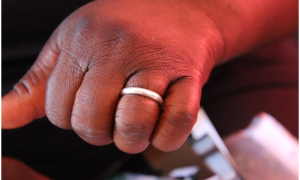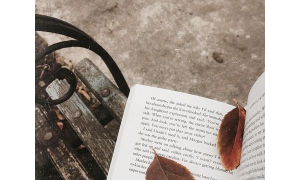take (one's) rest, have〔take〕 a rest
这两个短语在意思上有差别:前者常表示“就寝”,后者常表示“休息”。
rest, repose
这两个词都可表示“休息”。它们的区别是:
rest为普通用词,指劳作之后的放松过程; repose为正式用语,并不一定含有劳作后的放松过程的意味。例如:
Don't disturb her repose.不要吵醒她。
rest, remainder, remains, residue
这组词都有“剩余”的意思。它们的区别是:
remains指某物已用掉或毁掉一部分后的剩余部分或残余部分; remainder着重指作了扣除之后剩下的东西,也可指算术中的差数或余数; residue指某一过程中的残余物,尤指在化学反应中; rest表示在原有总体上剩下来的人或事物。例如:
Take five from eight and the remainder is three. 8减5余3。
Twenty of us went to reap wheat and the remainder worked in the cotton fields.我们之中20人去割麦,其余人在棉花田劳动。
Mary scraped the residue of food from the plates before putting them under water.玛丽在把盘子放入水之前先刮去上面的食物残渣。
There is a green residue in the bottom of the test tube.试管底部有绿色的沉淀物。
Keep the rest for yourself.剩下的都给你了。
rest on, rest with
这两个短语意思不同:rest on的意思是“依靠,依赖”, rest with的意思是“在于,取决于”。例如:
Science rests on observation.科学要靠观察。
The decision rests with you.决策由你负责定夺。
break,rest,pause,interval,recess,cease,stop,end
这些名词都含有“中止,停止,休息”之意。
break非正式用词,指突然的或短时间的中止,如工作或活动期间短暂休息。
rest指统称的休息。
pause指短暂的中断或停止,含再进行下去的意味。
interval指一出戏在幕与幕之间,音乐会上下串场之间或演出中预先安排的休息;也可泛指事件之间的一段时间。
recess正式用词,指业务活动或工作中短暂的或长时间的休息。
cease正式用词,侧重逐渐结束某活动或状态,含永远结束的意味。
stop普通用词,指迅速或突然中止某行为、活动或状态。
end多指“自然的结束”。
comfort,ease,leisure,relaxation,relief,rest
这些名词都含“舒适,安逸、悠闲”之意。
comfort通常指在摆脱烦人、痛苦的事情,或在要求、愿望得到满足后所感到的舒适。
ease指因没有担心和忧虑而轻松。
leisure专指闲暇时间或悠闲状态。
relaxation强调消除肌肉疲劳或思想的紧张状态,使身心松弛,得到休息。
relief侧重有消除痛苦、不适或困难的负担,常暗含不利因素已不存在的意味。
rest与work相对,强调消除身心疲劳,不着重休息方式。
remainder,surplus,rest,remains,balance
这些名词都含“剩余部分”之意。
remainder含义较广,可指数学运算中的余数,也指从整体取走或用掉部分后的所余部分,或一群人走掉一部分剩下的人。
surplus表盈余。
rest最普通用词与定冠词连用,指任何指定数量的人或物等。
remains常指人或动物死后的遗体或遗骨,也指古代文明的遗迹或去世作家尚未发表的遗稿。
balance指支取存款的余额或减去各种开支后的尾数。










